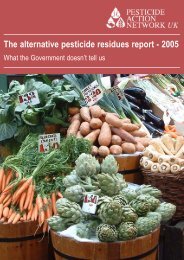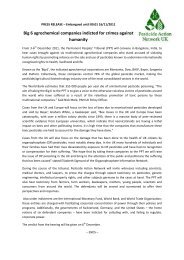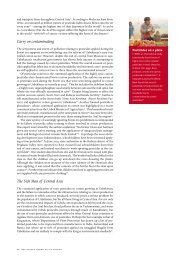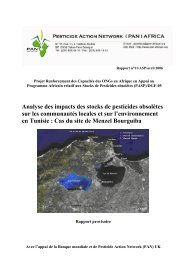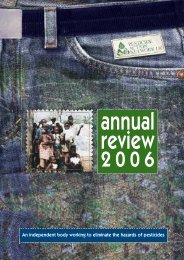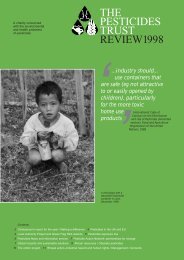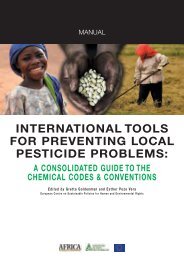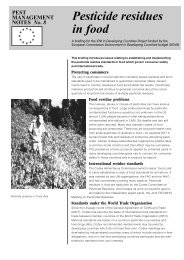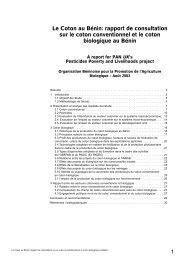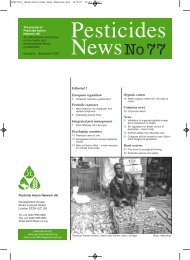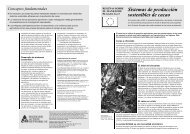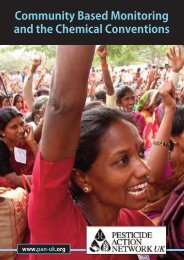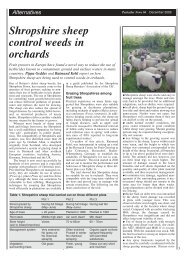Tanzania Multi Stakeholder Map - WebNG
Tanzania Multi Stakeholder Map - WebNG
Tanzania Multi Stakeholder Map - WebNG
You also want an ePaper? Increase the reach of your titles
YUMPU automatically turns print PDFs into web optimized ePapers that Google loves.
(iii)<br />
(iv)<br />
Disposal of DNOC at Cement kiln<br />
In mid 1996, 57,000 litres of obsolete DNOC (Red locust control<br />
Pesticides) was incinerated locally at Wazo Hill cement factory<br />
through GTZ support. Before the disposal operation, DNOC<br />
containing drums stored near the banks of Lake Rukwa were<br />
leaking thus posing risks to human health and the environment.<br />
This raised an alarm for remedial measures. The stock was then<br />
repacked and transported safely to Dar es Salaam. The then<br />
Ministry of Agriculture and Cooperatives in collaboration with other<br />
local institutions and GTZ undertook a feasibility study for<br />
incineration of DNOC at Wazo Hill. The trial runs proved that the<br />
disposal operation was safe and efficient. Burning of DNOC was<br />
then carried out under strict monitoring.<br />
Inventory of hospital waste management, Dar es Salaam<br />
In 1996, the Dar es Salaam Urban Health Project undertook an<br />
investigation of heath care waste management in the health<br />
facilities of Dar es Salaam and found out that most of health<br />
facilities in the city have small improvised and inefficient<br />
incinerators<br />
Usually, the generation rate of health care waste from dispensaries,<br />
health centre and hospitals is estimated to be 3 kg, 10 kg and 200<br />
kg per day respectively.<br />
Hospitals wastes comprise about 12 % of total hazardous wastes<br />
generated in the country, which are either incinerated or are<br />
disposed of together with other Municipal waste at selected<br />
disposal sites.<br />
(v)<br />
(vi)<br />
The Ministry of Health in collaboration with key actors developed a<br />
National Infrastructure for management of chemicals. UNITAR<br />
supported the preparation process. The National Profile is a<br />
framework document on chemicals aiming to assist national<br />
authorities to strengthen the chemicals management in the country.<br />
Inventory of Obsolete pesticides and Veterinary waste<br />
A national inventory of obsolete pesticides and veterinary waste<br />
was carried out in 1997 and 1998 through the support of the<br />
Netherlands Government. The inventory shows that there are about<br />
1000 metric tons of obsolete pesticides and 200 tons of veterinary<br />
waste located in more than 300 stores scattered all over the<br />
103




